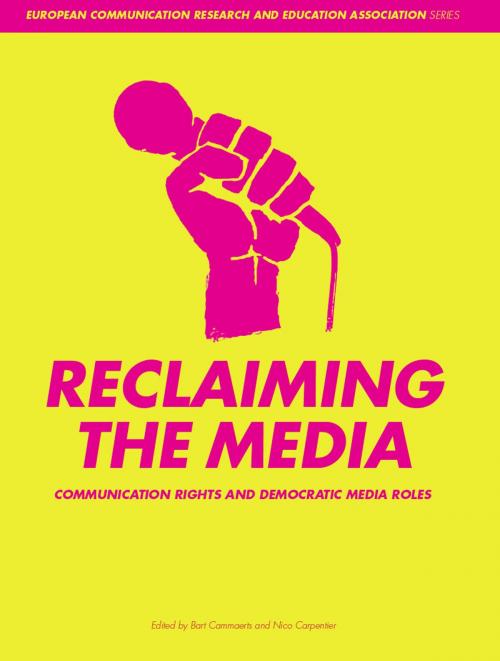Reclaiming the Media
Communication Rights and Democratic Media Roles
Nonfiction, Reference & Language, Language Arts, Communication, Entertainment, Performing Arts, Social & Cultural Studies, Political Science| Author: | Bart Cammaerts, Nico Carpentier | ISBN: | 9781841509754 |
| Publisher: | Intellect Books Ltd | Publication: | January 1, 2006 |
| Imprint: | Intellect | Language: | English |
| Author: | Bart Cammaerts, Nico Carpentier |
| ISBN: | 9781841509754 |
| Publisher: | Intellect Books Ltd |
| Publication: | January 1, 2006 |
| Imprint: | Intellect |
| Language: | English |
At the beginning of the 21st century, it hardly goes uncontested anymore that media organisations play an important role in democracy. The main questions have now become whether the contemporary media conjuncture offers enough to our democracies, how their democratic investment can be deepened and how our communication rights can be expande. This book aims to look at four thematic areas that structure the opportunities for democratising (media) democracy. A first section is devoted to citizenship and the public spheres, giving special attention to the general theme of communication rights. The second section elaborates further on a notion central to communication rights, namely that of participation. The third section returns to the traditional representational role in relation to democracy and citizenship, scrutinizing and criticizing the democratic efforts of contemporary journalism. The fourth section moves outside of the (traditional) media system, and deals with the diversity of media and communication strategies of activists. This is volume 3 in the European Communication Research and Education Association book series.
At the beginning of the 21st century, it hardly goes uncontested anymore that media organisations play an important role in democracy. The main questions have now become whether the contemporary media conjuncture offers enough to our democracies, how their democratic investment can be deepened and how our communication rights can be expande. This book aims to look at four thematic areas that structure the opportunities for democratising (media) democracy. A first section is devoted to citizenship and the public spheres, giving special attention to the general theme of communication rights. The second section elaborates further on a notion central to communication rights, namely that of participation. The third section returns to the traditional representational role in relation to democracy and citizenship, scrutinizing and criticizing the democratic efforts of contemporary journalism. The fourth section moves outside of the (traditional) media system, and deals with the diversity of media and communication strategies of activists. This is volume 3 in the European Communication Research and Education Association book series.















